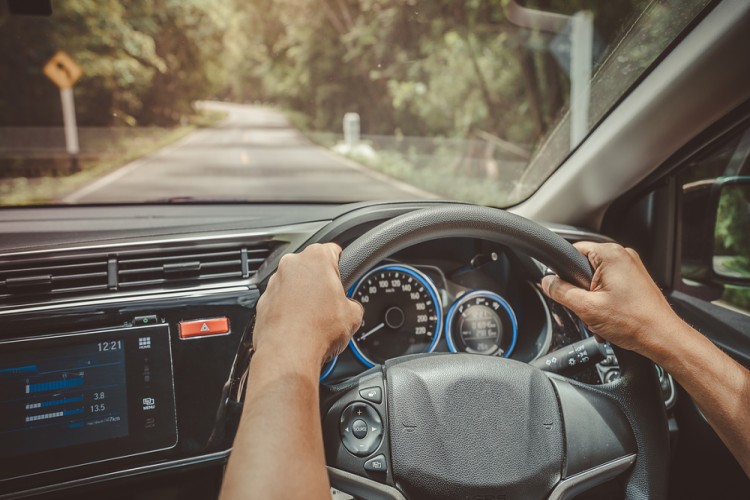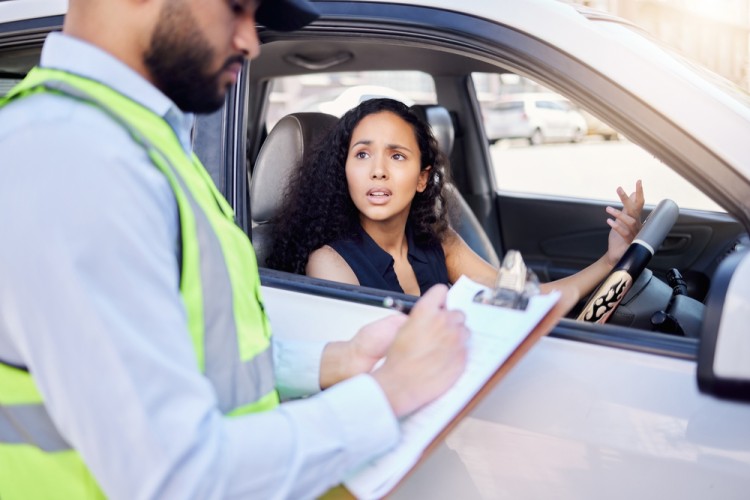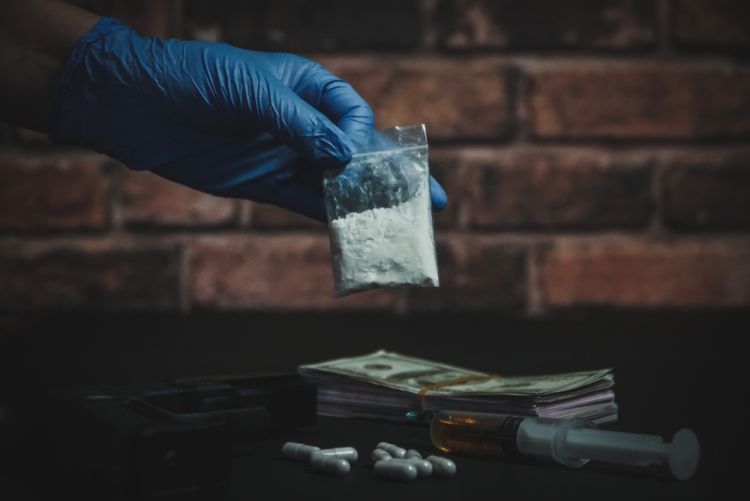
Are you dealing with a driving offence or penalty in Victoria? It is daunting to face losing your licence, reputation, or even your liberty, so it’s important to have someone you can trust.
t is an offence to drive if your licence has been suspended by the court, police, VicRoads, or the sheriff, so if you’re ever in a bind with licence suspension, you need a lawyer by your side.
This blog will be your best guide to how a traffic offence lawyer can help you with a licence suspension case.
If your licence is suspended, you cannot drive for a certain amount of time. It is an offence to drive a motor vehicle while the authorisation granted to do so has been suspended or during a period of disqualification from obtaining such authorisation.
If your licence is cancelled, on the other hand, your licence no longer exists, and you do not automatically get your licence back. You must apply to a court or to VicRoads for another licence when the cancellation time ends.
This offence is constituted by driving after a court, or VicRoads has suspended a driver’s licence; however, once the period of licence disqualification has expired, a driver who has not had their licence restored is considered unlicenced, not disqualified.

Let’s look at some of the most common driving offences so you are well-informed.
Schedule 5 of the Road Safety Act (s 28(1)(a) outlines the penalties for excessive speeding. If a driver is found guilty of speeding 25 kph or more over the speed limit, a licence is disqualified straight away for a minimum period. The court, in this case, has the discretion to increase the mandatory minimum disqualification period stipulated in the Road Safety Act (Section 28).
A driver who has been caught speeding in excess of 25 kph over the speed limit is no longer penalised with loss of demerit points but is now subject to a mandatory licence suspension in accordance with the speed (ss 28, 89D Road Safety Act).
In Part 5 of the Road Safety Act, there are seven types of drink driving offences, such as:
Some of the penalties and other consequences of drink driving offences include a minimum licence disqualification and fines or imprisonment, immediate licence suspension, seizure of the motor vehicle (even for first offenders with a BAC of 0.1 or over), the completion of a behavioural change program, and installation of an alcohol-interlock device when the licence is restored.

In the Road Safety Act, there are three drug impairment offences:
If you would like to learn more, have a read of what types of drug charges are most common, such as dangerous driving!
The Road Safety Act 1986 (Vic) (‘Road Safety Act’) is a major piece of legislation governing road law in Victoria, and amendments to this act introduce tougher conditions and penalties for drivers.
Under the Road Safety and Other Legislation Amendment Act 2020 (Vic) (‘2020 Act’), drivers have their licence suspended immediately if they are caught speeding excessively.
The Road Safety (Amendment) Act 2022 (Vic) (‘2022 Act’) provides new detection procedures and how a court can deal with these in relation to seat belt offences and mobile phone detection. This act also introduced immediate licence suspension for failure to stop after an accident that results in death or serious injury.
The Transport Legislation Amendment Act 2023 (Vic) provides minor amendments to the Road Safety Act, including trials to investigate how medicinal cannabis users can drive safely.
Facing a potential licence suspension is overwhelming, so how can traffic lawyers help?
Traffic law in Victoria is intricate, especially when handling restrictions imposed by a Magistrate’s Court order.
A skilled traffic offence lawyer helps you understand the appeals process and ensures all areas of your case are considered. For example, assessing evidence, preparing a defence, and representing you in court to achieve the best possible outcome.
Likewise, a traffic offence lawyer can help you with an infringement notice (such as lodging a notice of objection), which is served for most driving offences.
If you have been disqualified from obtaining a licence or permit or your licence or permit is cancelled, suspended, or varied by a Magistrate’s Court order, you may appeal to the County Court against this decision. However, this process is stressful without legal expertise.
Drivers considering an appeal should bear in mind that a more severe penalty may be imposed by a County Court Judge, and a criminal lawyer can help you navigate this. After all, you want all aspects of your case considered and penalties avoided or minimised.
Although you can represent yourself, this can be difficult if you don’t have legal experience and an understanding of traffic offence laws. Without knowing court procedures and how to argue a case, you can potentially weaken your defence.
A lawyer can also protect your rights and ensure they are upheld throughout the process.
When creating a defence against licence suspension, a criminal lawyer challenges the evidence presented against you by:
You, as the driver, were unaware of the suspension of disqualification. A criminal lawyer can provide advice on the merits of this defence.
You are not the owner of the car. The driver who commits an offence is driving a vehicle registered to another person, and this can be frustrating. Police can apply for a vehicle substitution order for the motor vehicle owned by the driver who has committed the offence. A lawyer can help to convince the court to make a vehicle substitution order, provided that the order does not cause undue hardship.
The prosecution can still suspend your licence even if they believe you did not know about the suspension and find you not guilty. They can also order you to serve the original licence suspension that you weren’t aware of.
You can also ask the magistrate to adjourn your hearing if you have a good reason to do so, such as finding a reputable lawyer to help you. Always contact a traffic offence lawyer for specific advice on your case.
In some circumstances, a driver is able to argue that their actions were justified due to necessity or emergency. This defence requires:
An experienced criminal defence lawyer can negotiate with prosecutors for lesser charges or alternative penalties, such as a Plan of Diversion for first-time offenders.
In more serious traffic offences, the driver may be issued with a summons or a Notice to Appear, or may be arrested, leading to the involvement of the courts.
A criminal lawyer can help you strategise against licence cancellation or suspension for Crimes Act 1958 (Vic) offences as according to Section 89, 89A Sentencing Act 1991 (Vic).
Overall, the prosecution has to prove two things: that you were the one driving on a public road, and your licence was suspended or cancelled, or you were disqualified from driving.
To learn more, read about mistakes to avoid when facing traffic charges!
Our client was charged with exceeding the speed limit by 45 k/h or more, and on finding of guilt he faced a mandatory minimum of 12 months licence loss.
Police alleged they had detected him on radar travelling at 135km/h in an 80km/h zone. However, the client admitted he was speeding but not going that fast.
Through the disclosure process with the prosecution, it was revealed that another vehicle had been travelling alongside the client at the time police made the radar detection. Cross-examining the police members at a contested hearing cast doubt on which vehicle they had detected.
The client was acquitted of exceeding the speed limit by 45km/h or more and was found guilty of the lesser charges of exceeding 35km/h. This meant he only lost his licence for 6 months rather than 12 because the client pleaded guilty to that charge at an earlier stage, and police were ordered to pay his legal costs.
Whether you need a traffic offence lawyer in Box Hill, Preston, Croydon, Craigieburn, Moorabbin, South Eastern Suburbs, Western Suburbs, or Northern Suburbs, May Lawyers are compassionate and professional.
With the right lawyer in your corner, you don’t need to worry about major traffic offences, speeding offences, a drink driving charge, or licence disqualifications. May Lawyers has an excellent track record of helping clients with traffic infringements and reducing (or removing altogether) potential penalties.
As one of the few recognised by the Law Institute of Victoria as an Accredited Law Specialist in criminal law, Will May assists you with criminal trials, traffic offences, drug offences, and bail applications and is available 24/7 if you’ve been arrested. We are dedicated to giving you the result you want. Contact us by calling 0415 582 404, email will@maylawyers.com.au or send through an online enquiry for a free case evaluation.